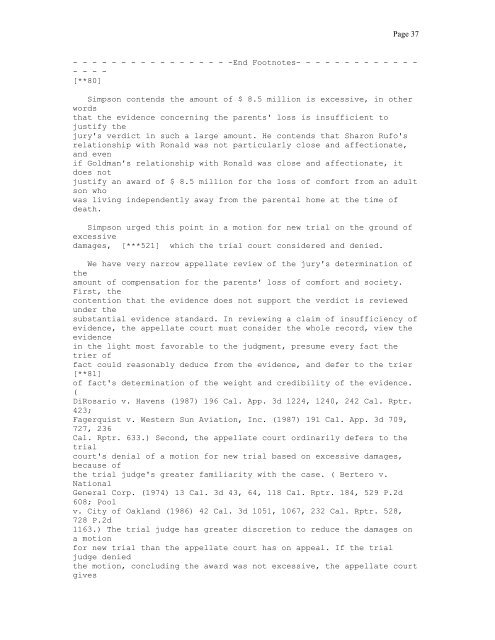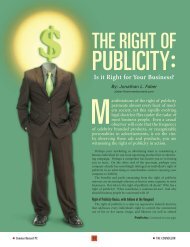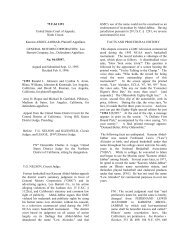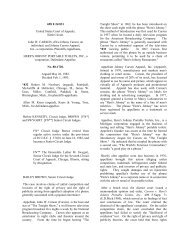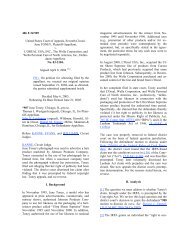Rufo v. OJ Simpson - Right Of Publicity
Rufo v. OJ Simpson - Right Of Publicity
Rufo v. OJ Simpson - Right Of Publicity
Create successful ePaper yourself
Turn your PDF publications into a flip-book with our unique Google optimized e-Paper software.
Page 37<br />
- - - - - - - - - - - - - - - - -End Footnotes- - - - - - - - - - - - -<br />
- - - -<br />
[**80]<br />
<strong>Simpson</strong> contends the amount of $ 8.5 million is excessive, in other<br />
words<br />
that the evidence concerning the parents' loss is insufficient to<br />
justify the<br />
jury's verdict in such a large amount. He contends that Sharon <strong>Rufo</strong>'s<br />
relationship with Ronald was not particularly close and affectionate,<br />
and even<br />
if Goldman's relationship with Ronald was close and affectionate, it<br />
does not<br />
justify an award of $ 8.5 million for the loss of comfort from an adult<br />
son who<br />
was living independently away from the parental home at the time of<br />
death.<br />
<strong>Simpson</strong> urged this point in a motion for new trial on the ground of<br />
excessive<br />
damages, [***521] which the trial court considered and denied.<br />
We have very narrow appellate review of the jury's determination of<br />
the<br />
amount of compensation for the parents' loss of comfort and society.<br />
First, the<br />
contention that the evidence does not support the verdict is reviewed<br />
under the<br />
substantial evidence standard. In reviewing a claim of insufficiency of<br />
evidence, the appellate court must consider the whole record, view the<br />
evidence<br />
in the light most favorable to the judgment, presume every fact the<br />
trier of<br />
fact could reasonably deduce from the evidence, and defer to the trier<br />
[**81]<br />
of fact's determination of the weight and credibility of the evidence.<br />
(<br />
DiRosario v. Havens (1987) 196 Cal. App. 3d 1224, 1240, 242 Cal. Rptr.<br />
423;<br />
Fagerquist v. Western Sun Aviation, Inc. (1987) 191 Cal. App. 3d 709,<br />
727, 236<br />
Cal. Rptr. 633.) Second, the appellate court ordinarily defers to the<br />
trial<br />
court's denial of a motion for new trial based on excessive damages,<br />
because of<br />
the trial judge's greater familiarity with the case. ( Bertero v.<br />
National<br />
General Corp. (1974) 13 Cal. 3d 43, 64, 118 Cal. Rptr. 184, 529 P.2d<br />
608; Pool<br />
v. City of Oakland (1986) 42 Cal. 3d 1051, 1067, 232 Cal. Rptr. 528,<br />
728 P.2d<br />
1163.) The trial judge has greater discretion to reduce the damages on<br />
a motion<br />
for new trial than the appellate court has on appeal. If the trial<br />
judge denied<br />
the motion, concluding the award was not excessive, the appellate court<br />
gives


